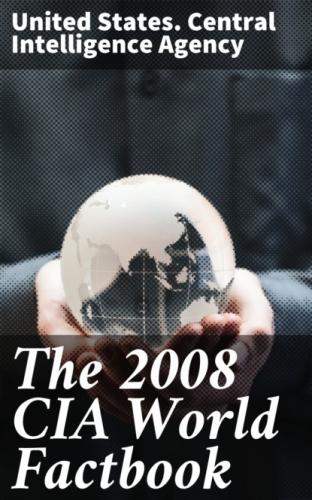Internet hosts:
24,018 (2008)
Internet Service Providers (ISPs):
12 (2000)
Internet users:
650,000 (2007)
Transportation
Ghana
Airports:
12 (2007)
Airports - with paved runways:
total: 7 over 3,047 m: 1 1,524 to 2,437 m: 4 914 to 1,523 m: 2 (2007)
Airports - with unpaved runways:
total: 5 914 to 1,523 m: 3 under 914 m: 2 (2007)
Pipelines:
oil 13 km; refined products 316 km (2007)
Railways:
total: 953 km narrow gauge: 953 km 1.067-m gauge (2006)
Roadways:
total: 62,221 km paved: 9,955 km unpaved: 52,266 km (2006)
Waterways:
1,293 km note: 168 km for launches and lighters on Volta, Ankobra, and Tano rivers; 1,125 km of arterial and feeder waterways on Lake Volta (2007)
Merchant marine:
total: 4 by type: petroleum tanker 1, refrigerated cargo 3 foreign-owned: 1 (Brazil 1) (2008)
Ports and terminals:
Tema
Military
Ghana
Military branches:
Ghanaian Army, Ghanaian Navy, Ghanaian Air Force (2007)
Military service age and obligation:
18 years of age for voluntary military service; no conscription (2008)
Manpower available for military service:
males age 16–49: 5,802,096 females age 16–49: 5,729,939 (2008 est.)
Manpower fit for military service:
males age 16–49: 3,737,481 females age 16–49: 3,729,699 (2008 est.)
Manpower reaching militarily significant age annually:
male: 273,265 female: 267,204 (2008 est.)
Military expenditures:
0.8% of GDP (2006 est.)
Transnational Issues
Ghana
Disputes - international:
Ghana struggles to accommodate returning nationals who worked in the cocoa plantations and escaped fighting in Cote d'Ivoire
Refugees and internally displaced persons:
refugees (country of origin): 35,653 (Liberia); 8,517 (Togo) (2007)
Illicit drugs:
illicit producer of cannabis for the international drug trade; major transit hub for Southwest and Southeast Asian heroin and, to a lesser extent, South American cocaine destined for Europe and the US; widespread crime and money laundering problem, but the lack of a well developed financial infrastructure limits the country's utility as a money laundering center; significant domestic cocaine and cannabis use
This page was last updated on 18 December, 2008
======================================================================
@Gibraltar
Introduction
Gibraltar
Background:
Strategically important, Gibraltar was reluctantly ceded to Great Britain by Spain in the 1713 Treaty of Utrecht; the British garrison was formally declared a colony in 1830. In a referendum held in 1967, Gibraltarians voted overwhelmingly to remain a British dependency. The subsequent granting of autonomy in 1969 by the UK led to Spain closing the border and severing all communication links. A series of talks were held by the UK and Spain between 1997 and 2002 on establishing temporary joint sovereignty over Gibraltar. In response to these talks, the Gibraltar Government called a referendum in late 2002 in which the majority of citizens voted overwhelmingly against any sharing of sovereignty with Spain. Since the referendum, tripartite talks on other issues have been held with Spain, the UK, and Gibraltar, and in September 2006 a three-way agreement was signed. Spain agreed to remove restrictions on air movements, to speed up customs procedures, to implement international telephone dialing, and to allow mobile roaming agreements. Britain agreed to pay increased pensions to Spaniards who had been employed in Gibraltar before the border closed. Spain will be allowed to open a cultural institute from which the Spanish flag will fly. A new noncolonial constitution came into effect in 2007, but the UK retains responsibility for defense, foreign relations, internal security, and financial stability.
Geography
Gibraltar
Location:
Southwestern Europe, bordering the Strait of Gibraltar, which links the Mediterranean Sea and the North Atlantic Ocean, on the southern coast of Spain
Geographic coordinates:
36 08 N, 5 21 W
Map references:
Europe
Area:
total: 6.5 sq km land: 6.5 sq km water: 0 sq km
Area - comparative:
a little less than one half the size of Rhode Island
Land boundaries:
total: 1.2 km border countries: Spain 1.2 km
Coastline:
12 km
Maritime claims:
territorial sea: 3 nm
Climate:
Mediterranean with mild winters and warm summers
Terrain:
a narrow coastal lowland borders the Rock of Gibraltar
Elevation extremes:
lowest point: Mediterranean Sea 0 m highest point: Rock of Gibraltar 426 m
Natural resources:
none
Land use:
arable land: 0% permanent crops: 0% other: 100% (2005)
Irrigated land:
NA
Natural hazards:
NA
Environment - current issues:
limited natural freshwater resources: large concrete or natural rock water catchments collect rainwater (no longer used for drinking water) and adequate desalination plant
Geography - note:
strategic location on Strait of Gibraltar that links the North Atlantic Ocean and Mediterranean Sea
People
Gibraltar
Population:
28,002 (July 2008 est.)
Age structure:
0–14 years: 16.9% (male 2,426/female 2,309) 15–64 years: 66.6% (male 9,507/female 9,153) 65 years and over: 16.5% (male 2,103/female 2,504) (2008 est.)
Median age:
